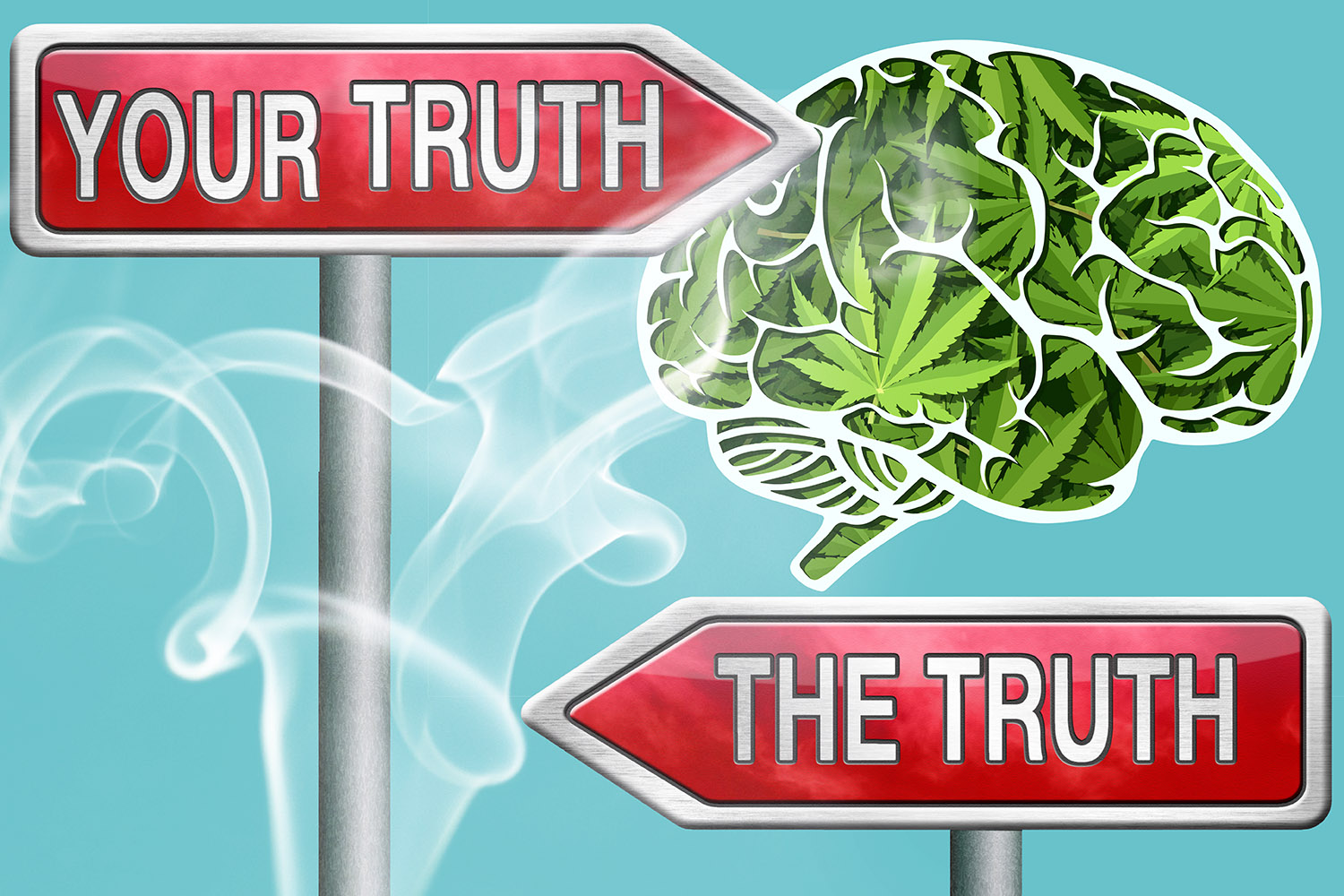Every day, I am amazed at how often contradictory and conflated ideas are presented that go unchallenged in our society. For instance, how a clear truth can be twisted into a lie ŌĆö
Truth: As eloquently affirmed in the U.S. Declaration of Independence, all humans are created equal. As such, each person has equal value, equal moral worth, and equal human rights. But this truth gets distortedŌĆ”
Lie: All humans are equal in ability. This lie is manifested in hostility toward decision-making based on objective differences.
HereŌĆÖs another one:
Truth: Affirmed in the U.S. Bill of Rights, we have freedom of conscience. We are free to believe anything we want to believe and should not be coerced by others to believe as they do. However, this truth also gets twisted ŌĆ”
Lie: All beliefs are equally valid or healthy. They are not! In fact, some beliefs are downright harmful. Yes ŌĆö people are still free to believe them, but that does not make the beliefs valid.
These two lies have recently begun to be expressed with the sentiment ŌĆ£my truthŌĆØ and ŌĆ£your truthŌĆØ ŌĆö the idea that everyone has their own version of truth and that all versions are equally valid. Moreover, weŌĆÖre told that we donŌĆÖt have the right to question anyone elseŌĆÖs version of ŌĆ£their truth.ŌĆØ
This is nothing more than a great fraud designed to get thinking people to be silent even when injurious and destructive ideas and practices are promoted.
Truth is how reality works. It is not based on opinion or a perception or a mere belief; truth is simply the way things are. Perhaps some get confused because they fail to see the difference between the ŌĆ£trueŌĆØ experience or perception of a person and the truth itself. For instance, it might be true that a person believes cigarette smoke helps their lungs work better, but it is not true that cigarette smoke actually helps their lungs work better. Many people fail to make this distinction and will say, ŌĆ£Who are you to judge? That is their truth.ŌĆØ
This deeply confused thinking is occurring more often, because people have lost the reality-based (truth) understanding of GodŌĆÖs law as design law. These are the laws upon which reality is built to operate ŌĆö the laws of physics, health, love, freedom, etc. When we reject the reality (truth) that GodŌĆÖs laws are design laws and accept the lie that they are mere rules no different functionally than the ones that humans make up, rules that require enforcement by a ruling authority, then we are vulnerable to the idea that all perspectives and beliefs are equally valid. Why? Because there is no objective reality; it is all arbitrary opinion.
A Case Study
One would expect that physicians would be insulated from falling into this trap, given that their profession requires they understand the laws of health and seek to harmonize people with these design protocols. Unfortunately, this doesnŌĆÖt seem to be the case. And when thought leaders begin practicing this distorted thinking process themselves, the corruption in our society only snowballs.
Last week, I attended a lecture by a leading world expert on medical marijuana research. I attended because I wanted to learn about the latest scientific research in this field. It was a three-hour symposium, but, sadly, the event had only a few minutes of actual science presented. And much of what was presented was contradictory and shallow.
For instance, not once during the lecture were the laws of health brought up ŌĆö the idea that, while states can pass laws to make such substances legal, passing such laws doesnŌĆÖt make them healthy. These substances are either healthy for the human body or they are not; our job as scientists is to examine the evidence and see what reality actually reveals.
For instance, there is no evidence that smoking or consuming marijuana is beneficial for mental health problems. While there is some evidence that CBD oil may have some benefit, CBD oil is not marijuana any more than nicotine is tobacco. CBD oil is one of 146 psychoactive compounds found in marijuana, but it is also found in hemp. It provides no mood altering high.
On the contrary, multiple studies show that marijuana use actually increases the risk of psychosis; increases anxiety; damages the brainŌĆÖs memory circuits; worsens depression and bipolar disorder; increases inattention; decreases motivation and coordination; and even lowers IQ. Yet despite the unequivocal evidence that marijuana plays no role in treating psychiatric disorders, data reveals that the vast majority of medical certificates provided by doctors to patients for using medicinal marijuana are not for the few conditions for which it may have some benefit, but rather for mental health problems that it worsens!
In Massachusetts, where medical marijuana is legal, 90 percent of those receiving certificates from doctors for medical use do not have one of the eight allowable medical conditions. So who is getting the certificates?
Number of Certificates
- ALS 11
- ParkinsonŌĆÖs Disease 41
- Glaucomas 227
- HIV/AIDS 265
- CrohnŌĆÖs 276
- Multiple Sclerosis 347
- Hepatitis C 403
- Cancer 756
- Other conditions (mostly psychiatric) 22,130
Why do doctors write these certificates for mental health disorders when the evidence demonstrates it will only worsen the condition? The patient reports it helps them ŌĆö it is their ŌĆ£truthŌĆØ and who is the physician to disagree.
During the symposium, it was noted that in Colorado, deaths by opiate overdose have decreased ever since medical marijuana was legalized. It was suggested this was due to people with chronic pain conditions needing less prescription pain meds, as marijuana reduces pain perception. However, no evidence was presented to support this conjecture. Moreover, the vast majority of people who overdose on opiates are not patients with chronic pain receiving prescription pain medication from their physician, but those with opiate addiction who are using illegal drugs. However, this was also never discussed.
It was also pointed out that in states in which medical marijuana has been legalized, Medicaid costs for opiate medications have gone down. It was suggested that legalizing marijuana, therefore, could lower healthcare costs. But it was not pointed out that the reduction in Medicaid costs for pain management was due to the fact that states donŌĆÖt pay for medical marijuana; thus, the cost was simply shifted to the individual patient to purchase his or her own marijuana. So, the reality is that there is no evidence that healthcare costs would actually be reduced.
But worse, no evidence was presented on the potential health problems from the chronic smoking of the marijuana plant, such as whether cancers and lung disease could increase.
The presentation went back and forth between social and medical issues, such as legalization and health benefits, but these are two separate issues. For instance, everyone today knows that there are no health benefits from tobacco smoke, yet society has decided to keep tobacco as a legal substance available to adults. Two separate issues that are clearly understood when it comes to tobacco, but with marijuana, such clarity is lacking.
Many people are smoking marijuana, falsely believing it is not harmful and has no health risks. No matter how much they believe they are being helped, it doesnŌĆÖt mean they are.
Yes, every person is free to believe what they want, but please donŌĆÖt confuse that truth with the lie that all beliefs are equally healthy; they are not! The challenge for each of us is to develop, by practice, the ability to discern the true from the false (Hebrews 5:14).
REFERENCES:
Lucatch, A. et al. Cannabis and Mood Disorders, Current Addiction Reports, September 2018, Volume 5, Issue 3, pp 336ŌĆō345.
Lev-Ran, S. et al., The association between cannabis use and depression: a systematic review and meta-analysis of longitudinal studies, Psychological Medicine Volume 44, Issue 4 March 2014 , pp. 797-810
Pacek, R. et al., The bidirectional relationships between alcohol, cannabis, co-occurring alcohol and cannabis use disorders with major depressive disorder: Results from a national sample Journal of Affective Disorders, Volume 148, Issues 2ŌĆō3, June 2013, Pages 188-195
Feingold, D., et al., Cannabis use and the course and outcome of major depressive disorder: A population based longitudinal study, Psychiatry Research, Volume 251, May 2017, Pages 225-234.
Bally, N., et al., Cannabis use and first manic episode, Journal of Affective Disorders, Volume 165, 20 August 2014, Pages 103-108.
Lev-Ran, S. et al., Bipolar disorder and co-occurring cannabis use disorders: Characteristics, co-morbidities and clinical correlates Psychiatry Research Volume 209, Issue 3, 30 October 2013, Pages 459-465.
Crippa, J. et al., Cannabis and anxiety: a critical review of the evidence, Human Psychopharmacology: Clinical and Experimental, Volume24, Issue7, October 2009, Pages 515-523.
Hser, Y., et al., Reductions in cannabis use are associated with improvements in anxiety, depression, and sleep quality, but not quality of life, Journal of Substance Abuse Treatment Volume 81, October 2017, Pages 53-58.
Wilkinson, S.┬Ā et al., Marijuana Use is Associated with Worse Outcomes in Symptom Severity and Violent Behavior in Patients with PTSD, J Clin Psychiatry. 2015 Sep; 76(9): 1174ŌĆō1180.
Steenkamp, M. et al., Marijuana and other cannabinoids as a treatment for posttraumatic stress disorder: A literature review, Depression and Anxiety, Volume34, Issue3, March 2017, Pages 207-216.
Scott, C. et al., Association of Cannabis With Cognitive Functioning in Adolescents and Young Adults A Systematic Review and Meta-analysis, JAMA Psychiatry. 2018;75(6):585-595.
Meier, M. et al., Persistent cannabis users show neuropsychological decline from childhood to midlife, PNAS October 2, 2012 109 (40) E2657-E2664.









 using your credit or debit card (no PayPal account needed, unless you want to set up a monthly, recurring payment).
using your credit or debit card (no PayPal account needed, unless you want to set up a monthly, recurring payment). instead?
instead?